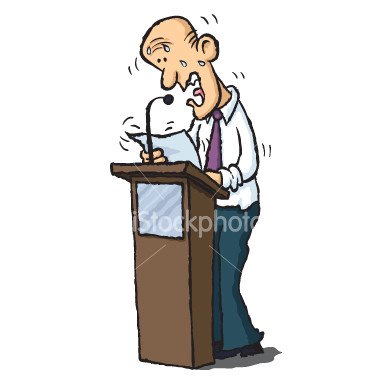Huh? Writing Articles That Communicate
By Lynn Kinnaman
People arent reading as much these days. Maybe its because there are so many words, yet so few that say anything.
Writing is not about perfect grammar. But just as a poorly built boat wont keep you afloat, writing that has numerous misspellings and awkward sentence structure will fail to communicate.
Its not hard to write an effective article, but it does take a little effort on your part.
First, abandon the classroom mentality. An article is not a book report, neither is it a thesis. Think of it as a letter to a friend. Conversational, informative, friendly, upbeat.
The average adult reads at a fifth grade level. Simple words, clear concepts and logical presentation will help you make your point. Of course, to accomplish this, you first need to know what you want to say in your article.
Having a defined goal helps you to focus, and keeps you on target. This is especially important if you are writing a short article, although longer pieces benefit from it, too.
Once you have your purpose, you will naturally be thinking of the components of the piece. Imagine you are on the bottom rung of a ladder, and each step is a point you wish to make on your way to the conclusion. You dont climb a ladder two steps up, one down, skip one, three up. You progress logically, each step leading to the next.
An outline can help you plan the process. It doesnt have to be formal to be useful. The goal here is to include everything thats important and do so in a logical fashion.
To make your writing stronger, avoid passive sentences and extra words. For example, compare the following:
The winner should be the man who is the best.
May the best man win.
Again, in school you aimed for volume, padding your writing in order to meet the word count or page criteria. You spent years perfecting poor writing skills. Now you need to unlearn them and build your sentences like arrows; strong, swift and accurate.
Dont be intimidated by punctuation. Its important, but you are not being graded on it. Spelling and grammar deserve more attention, because if you ignore them, you can quickly lose a portion of your audience.
The conclusion should echo the beginning. If you set out to prove a statement, the conclusion should summarize what you proved. If you began with a visual description or motif, the ending needs to acknowledge it.
If youve planned this correctly, you arent putting the final touches on ten minutes before the mail goes out (ah, you were the one typing the term paper the night before it was due, werent you?)
The ideal situation is to be able to set the article aside for 24 hours or more, then pick it up and read through it with fresh eyes. Youll find a few things to revise that you missed previously.
Okay, youre done.
Not so fast, Shakespeare.
The final step is to read your article out loud. Not to another person. A dog or cat will do fine. In a pinch, a sofa or table works. Youre really reading for your own ears. Youll discover, as you read, where the structure is awkward, or the sentence lacks impact. Or where you have put repeat words. Read mindfully and youll improve your work.
Its great! Now you can show it to your friends and family, or send it off to that professional publication or newsletter. You have an article you will be proud to see in print, and, more importantly, a piece that is worth reading.
(If you are ready to publish your writings, consider ebooks. Theyre an affordable way to publish! Find out more at http://www.winningmediapublishers.com)
Lynn Kinnaman has written and published non-fiction books, travel guides, as well as numerousmagazine and newspaper articles. She has taught classes on writing, preparing effective resumes and job-hunting techniques. Lynn has been an editor, business owner, marketing manager and advertising executive for companies both large and small. She has designed advertising and marketing campaigns, incorporating print, radio, TV and Internet marketing with successful results.
Article Source: http://EzineArticles.com/?expert=LynnKinnaman
http://EzineArticles.com/?Huh?-Writing-Articles-That-Communicate&id=308186

No comments:
Post a Comment